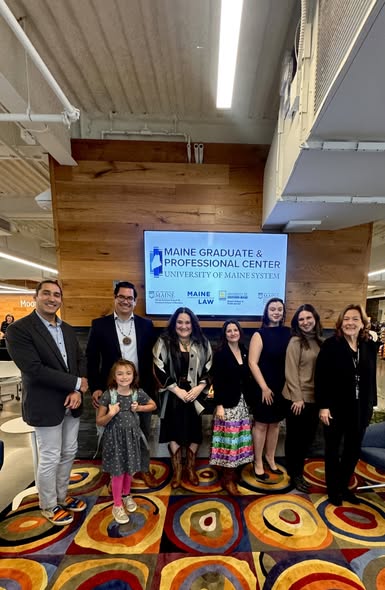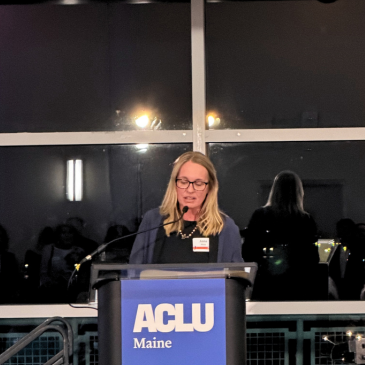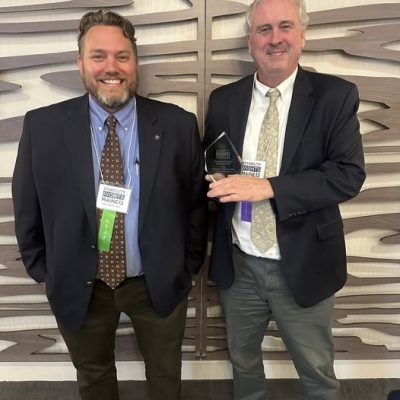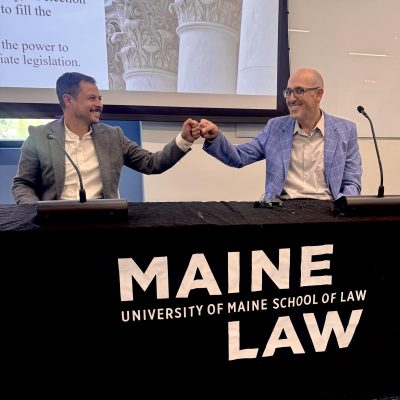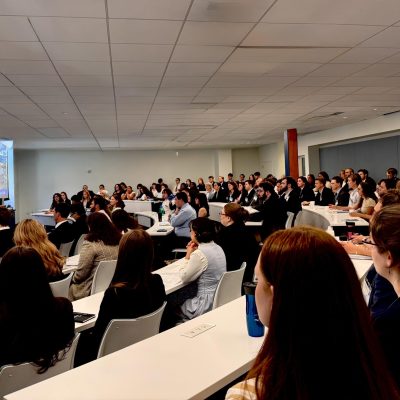Maine has a large rural population – over 60 percent – that is underserved in a variety of ways from healthcare to reliable internet to legal services. Fostering and developing rural lawyers is a cornerstone of Maine Law’s mission, and the school will soon launch a Rural Legal Aid Clinic in Fort Kent with the specific purpose of serving rural communities and training the next generation of rural Maine lawyers.
While the clinic is a new initiative, Maine Law’s Rural Practice Summer Fellowship has operated for many years, placing students interested in serving remote communities with law offices across the state. This year’s Rural Practice Fellows include Allison Dean, who is working with Mills, Shay, Lexier & Talbot in Skowhegan, Pierre Dillon, Kristin Hebert, and Libby Wood.
Dillon, who is working with Mailloux & Marden in Belfast, said the opportunity to represent underserved populations is an honor and one of his central motivations in pursuing a law degree.
“Last semester I worked with the Cumberland Legal Aid Clinic for their prisoner assistance program where we provided legal services to incarcerated populations,” Dillon explained. “I found that really fulfilling, providing services to those who don’t always have the best access to them. The same logic, for me, applies, to rural practice, people in rural areas have the same legal needs as people in urban areas, but they don’t always have access to the same representation.”
While Dillon is doing a little bit of everything from family to estate law, Wood is working with Attorney Taylor Kilgore, who serves the Turner area, doing a deep dive on family matter and protective custody law.
Wood shadows Kilgore closely, coming along for home visits and custody hearings, learning from Kilgore’s skill at navigating emotional situations while still prioritizing the best interest of children. In particular, Wood said, rural communities need experienced practitioners like Kilgore to ensure kids don’t get eaten by the system.
“There’s a serious shortage of attorneys that do this kind of work throughout Maine and they are spread especially thin in our rural communities,” she explained. “I want to work with rural communities, I grew up in one and plan to live in one after I graduate, so it only makes sense that I use my education to serve them, even if the work is difficult or emotional.”
Although she hasn’t yet decided which area of law she’d like to specialize in, Wood knows she wants to be a sole practitioner like Kilgore, which she said sometimes allows a lawyer to be nimbler and more nuanced in their work.
Like Wood, Hebert said she enjoys taking a closer look at one area of the law, in her instance with Camden Law in Rockport. Instead of family law, however, Hebert is working primarily on transactional law. She’s receiving exposure to the brass tacks of legal practice and what life in a rural practice can look like.
“I wanted to gain some hard skills and working with a practice felt like a great way to accomplish this,” she added. “I’ve really enjoyed gaining these skills and watching how the attorneys build relationships…. One of the lawyers I’m working with has this really positive relationship with a judge, this great rapport with the bailiffs, and loyal clientele who continue to draw on her expertise. She’s really become a role model for me.”
While there are some challenges to rural practice, the three said, like long hours in the car and even longer hours at a desk, the privilege of serving Maine’s rural communities far outweighs some of these drawbacks. And the exposure to life at a practice, especially one outside of Portland, proved a formative and educational experience for them all.
“For me, law school is about absorbing as much information as I can,” Wood said, “and I’ve learned so much about the intricacies of lawyering and family law this summer. Issues come up that I would never have previously considered in a classroom setting, and I just didn’t know what I didn’t know.”


